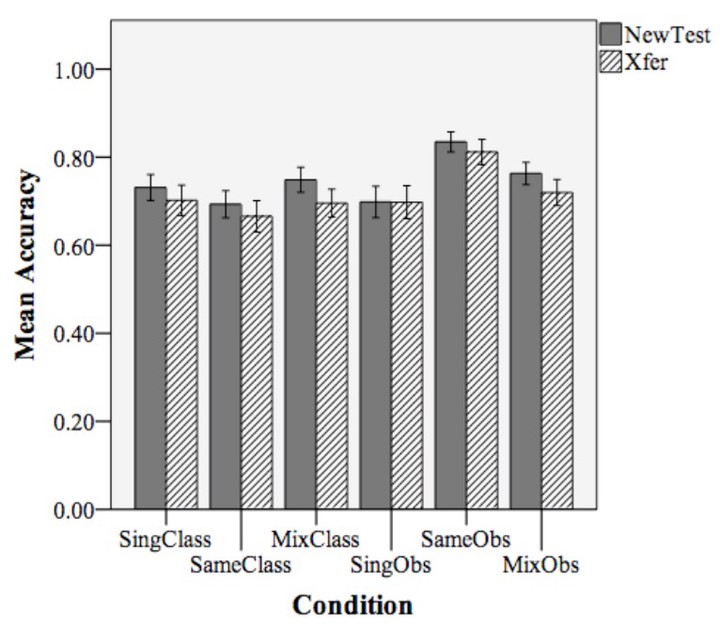Patterson & Kurtz (2015) Learning mode and comparison in relational category learning
 Image credit: Unsplash
Image credit: Unsplash
Abstract
An important goal in the study of higher-order cognition is to understand how relational categories are acquired and applied. Previous work has explored the potential of within- category comparison opportunities to promote relational category learning and transfer. This follows from predictions of structure mapping theory (Gentner, 1983, 2003) that alignment leads to highlighting and abstraction of common relational structure. However, a straightforward merging of traditional classification learning with comparison (i.e., trials presenting two same-category items) has not been effective. We explore the hypothesis that classification and comparison have an unforeseen incompatibility. In a 3x2 between- subjects design we tested three presentation conditions (unconstrained item pairs, category-matched items pairs, single items) in two supervised category learning modes: classification and observation. The major finding is an interaction driven by highly accurate categorization for the observational learners with same-category pairs. The introduction of the observational mode yielded the predicted, but elusive result of an advantage for within-category pairs over twice as many single-item trials. We conclude that within-category comparison can be an effective means to promote relational category learning and discuss the apparent impediment of the guess-and-correct cycle.